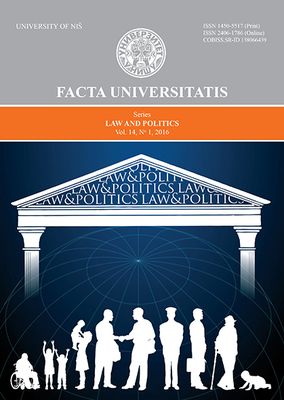HATE SPEECH ON THE INTERNET
HATE SPEECH ON THE INTERNET
Author(s): Miomira P. Kostić, Vida VilićSubject(s): Human Rights and Humanitarian Law, Communication studies
Published by: Универзитет у Нишу
Keywords: Internet; freedom of expression; hate speech; prevention
Summary/Abstract: In addition to the benefits offered by the Internet and social networks, there has been an increase of cyberspace abuses related to certain groups of people belonging to particular age, gender, sex, national or religious groups. By virtue of social networks, these individuals and groups are exposed to different forms of harassment, insults, calls for lynching (etc.), all of which amount to hate speech. The Universal Declaration of Human Rights recognizes the freedom of expression as a human right but the freedom of expression on the Internet is subject to certain limitations because the Internet is not void of different forms of deviant behavior (such as hate speech), which incite discrimination, hatred or violence against groups or individuals on the basis of their personal characteristics. In Serbia, the relevant legal provisions for combating hate speech are embodied in the Serbian Constitution and a number of legislative acts: the Anti-Discrimination Act, the Public Information Act, the Act on the Prevention of Discrimination against Persons with Disabilities, and the Criminal Code of the Republic of Serbia. The most important factors in preventive action are: a detailed normative regulation of this subject matter, detection of all forms of Interent abuse and relevant sanctions for these offences, detection of contents published on social networks which are most frequently used to incite and disseminate speech, raising public awareness, ensuring constant monitoring and control by network administrators and users.
Journal: FACTA UNIVERSITATIS - Law and Politics
- Issue Year: 14/2016
- Issue No: 1
- Page Range: 31-40
- Page Count: 10
- Language: English

